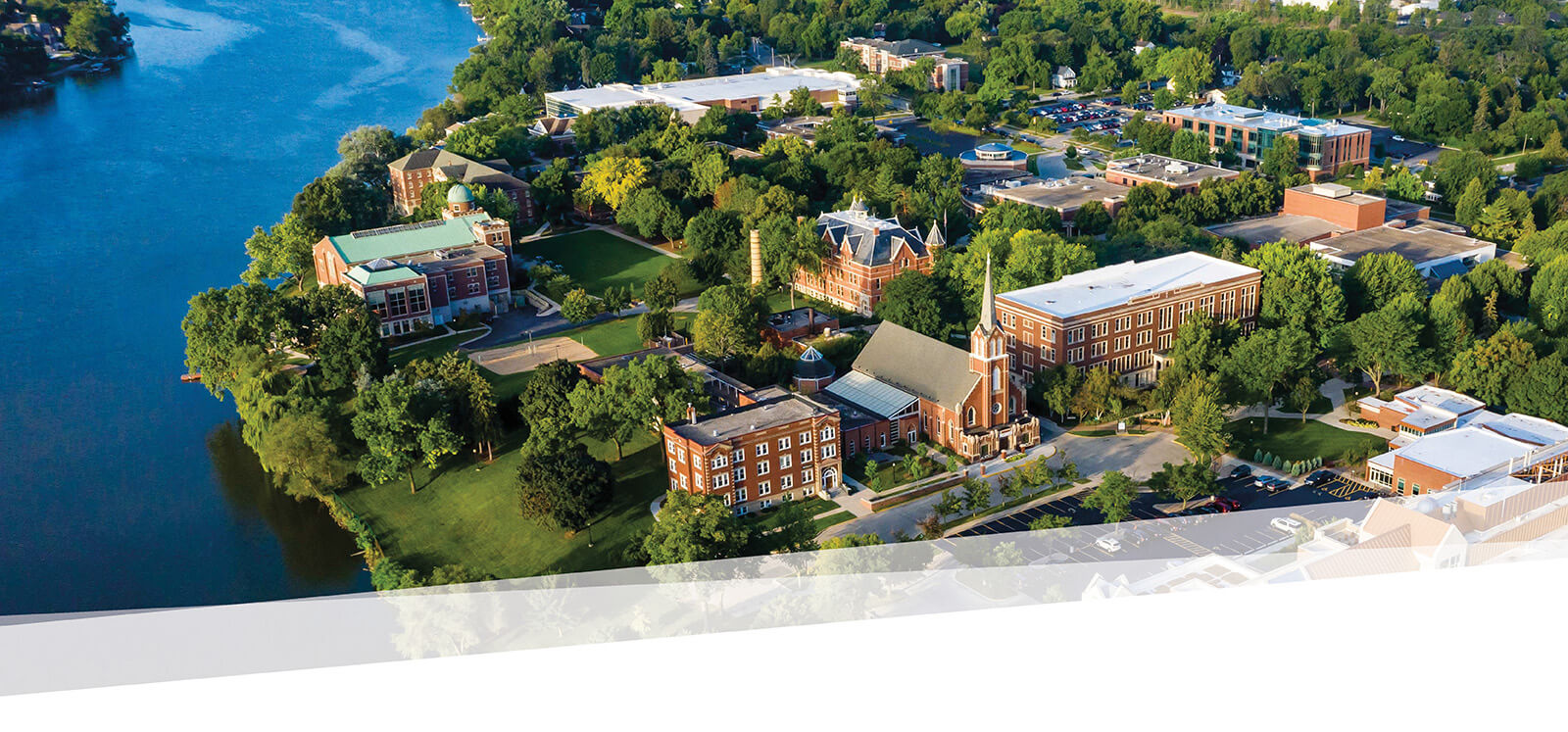

If you’re a highly motivated economics major who wants to obtain a master’s degree, we have a great partnership that may interest you. Through a 4+1 collaboration with the Marquette University Graduate School of Management, you could earn a Master of Science in Applied Economics (MSAE) – a designated STEM degree – in as little as one extra year.
Certain upper-level electives at St. Norbert College carry graduate credits for students who opt to do additional course work prescribed by Marquette University faculty.
Up to two of the advanced SNC economics courses, taken as a senior, will transfer as electives to Marquette for use in the MSAE program. These courses fulfill the requirements for undergraduate work at SNC and count toward graduate credits required by Marquette.
The MSAE requires 10 courses and a master’s project. Completing the first two courses while still enrolled at SNC effectively reduces the time requirement at Marquette from four semesters to three.
Students can also can take two summer courses at Marquette, either simultaneously or split between two summers, to further reduce the time needed to complete MSAE requirements.
Consult with your economics faculty mentor at SNC to discuss whether this program is a good fit for you. Interest in the program alone does not guarantee acceptance by Marquette.
SNC students need to formally apply to the Marquette University Graduate School of Management in their senior year while taking the two accelerated SNC courses designated for graduate credit.
Students should take the GRE or GMAT in the fall of their senior year, then apply for financial aid for their fifth year, if desired.
The value of an MSAE is reflected in the marketability and success of those who obtain the degree. Graduates of the MSAE program, including those from St. Norbert College, work for employers such as Rockwell Automation, Associated Bank, US Bank, MISIX, Artisan Partners, the U.S. State Department, Marketing Analytics, Ziegler Capital Management, MillerCoors, MGIC, Wells Fargo Funds Management, Northwestern Mutual Financial Network, Direct Supply, Kohler, Reinhart Partners and the Chicago Group.
A Bachelor of Science in economics requires the following courses within the discipline (9 courses):
The Master of Science in Applied Economics (MSAE) requires the following (10 courses, a noncredit master’s professional project and an oral comprehensive exam):

Campus location
Ariens Family Welcome Center
310 College Ave.
De Pere, WI 54115
Hours of operation
Monday-Friday
8 a.m.-4:30 p.m.
We’re also available by appointment.
Mailing address
Office of Admission
St. Norbert College
Ariens Family Welcome Center
100 Grant St.
De Pere, WI 54115